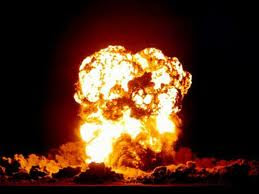The mid-action scene cliffhanger
Usually includes:
- Major decision
- A clock running down
- High tension paranoia or drama as an event unfolds
- An announcement of just how near disaster the characters are at (or world)
- Questions left in the air
- Surprise events or revelations
Impact:
- High tension initially
- Quick reduction in attachment to story during a lull
- Mild curiosity as to result unless teasers are used to heighten tension once more
The near-death or death scene cliffhanger
Usually includes:
- Death or near-death (not made clear) of a favourite character
- Death or near-death (not made clear) of an important (to the plot) character
- An announcement of dire circumstances or a decline in health
- Surprise events or revelations
- Portents of death or disaster
Impact:
- High tension initially
- Slow reduction in attachment to the story during a lull
- Lasting curiosity as to the character's survival or the impact of their death
The unsolved mystery cliffhanger
Usually includes:
- Mysterious dialogue
- A look or exchange of information view another method
- Revealing the situation remains unresolved
- The reappearance of a 'dead' character
- Announcement of a surprising event or mysterious development
- Questions left in the air
- Surprise events or revelations
Impact:
- Medium tension initially
- Slow reduction in attachment to the story during a lull
- Lasting curiosity as to how the mystery is resolved
The unresolved relationship/s cliffhanger
Usually includes:
- Question left in the air
- Certain characters left mid-issues
- Mysterious or meaningful dialogue
- Announcement of an unexpected event or relationship development
- Questions left in the air
- Surprise events or revelations
Impact:
- Mild impact initially
- Quick reduction of attachment to the story during a lull
- Quickly fading curiosity as to how the relationships work out (why soap operas don't leave much time between episodes)
The unfinished roundup cliffhanger
Usually includes:
- Mysterious dialogue
- A secret left unrevealed
- Leading events
- Announcement of a mysterious event
- Questions left in the air
- Some major or minor plot lines remain unresolved
- Surprise events or revelations
- Portents
Impact:
- High-mild impact initially (depending on the issues unresolved)
- Moderate-slow reduction of attachment to the story during a lull
- Lasting curiosity as to how the story continues (mainly due to frustration or attachment to a character)
The hint at more mysteries and/or more action cliffhanger
Usually includes:
- Portents
- Mysterious dialogue
- Possible impending disaster (often less dramatic re impact than a doomsday or major plot change cliffhanger)
- Announcement of an event
- Questions left in the air
- Surprise events or revelations
Impact:
- High impact initially
- Slow reduction of attachment to the story during a lull
- Lasting curiosity as to how the story continues
(Why the round up and cliffhanger of The River drove many people nuts.)
The doomsday cliffhanger
Usually includes:
- Surprise events or revelations
- Announcement of a disastrous event
- Portents
- Impending disaster
- Mysterious dialogue
Impact:
- High impact initially
- Slow reduction of attachment to the story during a lull
- Lasting curiosity as to how the story continues
The major change in plot cliffhanger
Usually includes:
- Major decision made
- Announcement of a surprising event
- Reversal in decision, events or plot
- Impending disaster
- Questions left in the air
- Surprise events or revelations
Impact:
- Medium-high impact initially
- Moderate reduction of attachment to the story during a lull
- Quickly fading curiosity as to how the story continues
A summary of cliffhangers aspects:
- Major decisions made
- Announcement of an event
- Mysterious, important or revealing dialogue
- Secrets revealed
- Questions left in the air
- Impending disaster
- Dangerous emotions
- Portents
- Reversal or decisions, events or plot lines
- Surprise events or revelations
Hints on choosing a type of cliffhanger:
- If writing books, choose one with lasting impact but less initial frustration. The audience tends to want a complete story, even if it is part of a series. If writing an incomplete story, make sure to provide enough reader satisfaction so that any frustration felt doesn't work against the audience's attachment to story.
- If writing TV scripts, choose a high impact and lasting cliffhanger for the final episode of the season but milder ones throughout the season. If writing a suspenseful script rather than an action on then create a final cliffhanger that is high on intrigue.
- If writing movie or play scripts, round up completely unless there's another movie to come in the series. Even so, leave only minor issues or developing relationships unresolved. Any intriguing cliffhanger should have an answer or two hinted at within the story to create arguments within the audience. If there's to be no roundup then no initial explanations are required either.








No comments:
Post a Comment